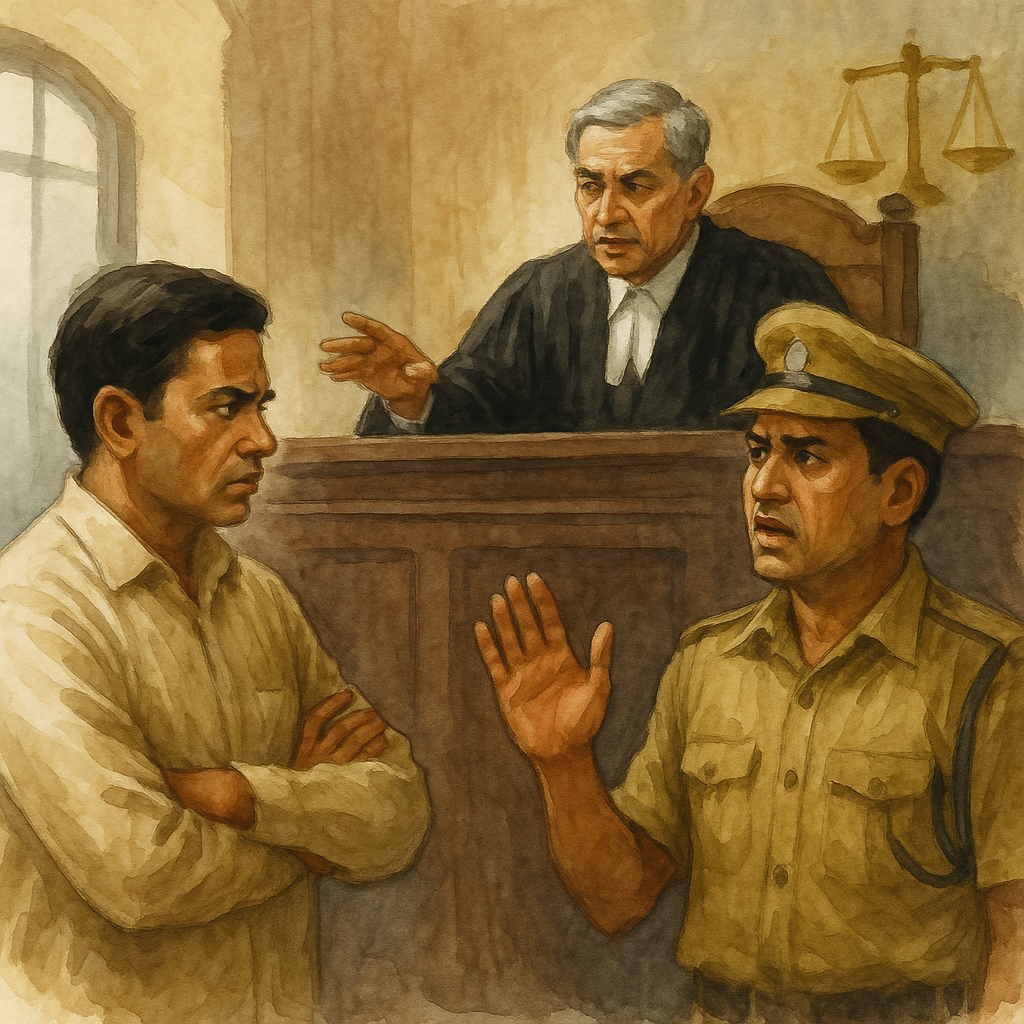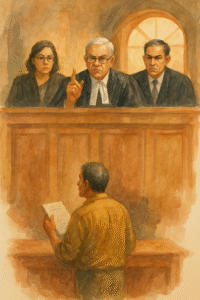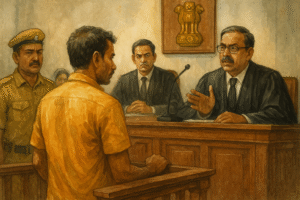The Patna High Court has quashed an entry tax demand raised against a sugar manufacturing company, citing lack of procedural fairness and inadequate examination of objections by the tax authorities. This decision, delivered in CWJC No. 20131 of 2011, emphasizes that tax assessments must strictly follow statutory procedures and reflect proper application of mind.
Simplified Explanation of the Judgment
The petitioner, a sugar manufacturing unit operating in Gopalganj, Bihar, challenged the legality of an ex-parte assessment order and subsequent demand notices issued by the Assistant Commissioner of Commercial Taxes and upheld by the Revisional Authority. These notices demanded payment of entry tax for the years 2006–07 and 2007–08.
Initially, the petitioner had also challenged the constitutional validity of the Bihar Entry of Goods into Local Area for Consumption, Use or Sale Therein (Amendment and Validation) Act, 2008. However, during the hearing, their counsel dropped this challenge. Thus, the court focused solely on the demand notices and assessment orders.
The primary contention was that after the amendment of the parent Act in 2007, the schedule of taxable goods was replaced, and no fresh notification specifying tax rates was issued until July 31, 2008. The petitioner argued that this gap invalidated any tax demands for the intervening period.
However, the Court disagreed. It pointed to the presence of a savings clause in the 2007 amendment, which explicitly preserved all previous notifications and actions taken under the original Act. Relying on established Supreme Court jurisprudence, the Bench reaffirmed that a savings clause can sustain the continuity of tax provisions despite legislative amendments.
Nonetheless, when examining the actual assessment order and its revision, the Court found serious flaws:
- The order was passed ex-parte without giving the petitioner a reasonable opportunity to present its case.
- The assessment did not specifically evaluate whether each of the 32 items imported by the petitioner fell within the taxable category under the schedule.
- The Revisional Authority also failed to engage with the petitioner’s objections meaningfully.
Given these lapses, the High Court quashed the assessment order and the revision decision. It directed the Assessing Officer to conduct fresh proceedings, ensuring the petitioner is heard and relevant materials are properly considered. The Court set strict timelines for these proceedings and clarified that the question of the constitutional validity of the Act is no longer open for debate.
Significance or Implication of the Judgment
This judgment reiterates the judiciary’s stance that taxation authorities must exercise their powers responsibly and transparently. It reinforces that even when a tax is lawfully levied, the assessment process must uphold principles of natural justice. The ruling protects businesses from arbitrary tax demands and highlights the importance of detailed, individualized assessment—especially in fiscal matters.
For the government, it serves as a reminder to maintain administrative diligence when issuing tax assessments. For taxpayers, especially industrial units, it is a precedent affirming their right to challenge faulty or high-handed tax actions.
Legal Issue(s) Decided and the Court’s Decision
- Whether entry tax could be levied for the period 29.08.2006 to 31.07.2008 in absence of a fresh notification?
➤ Held: Yes, due to the savings clause in the 2007 amendment, prior notifications remained valid. - Whether the assessment order and the revisional order were passed lawfully?
➤ Held: No, both were quashed due to procedural irregularities and failure to apply judicial mind. - Whether petitioner’s objections regarding the specific goods were considered?
➤ Held: No, neither order addressed these objections adequately. - What directions were issued for fresh assessment?
➤ Held: Fresh assessment ordered with specific timelines, ensuring proper hearing and consideration of documents.
Judgments Referred by Parties
- M/s United Spirit Ltd. vs. State of Bihar & Ors. (2008 BRLJ 239)
- M/s Indian Oil Corporation Ltd. & Anr. vs. State of Bihar & Ors. (2007 (1) PLJR 502)
- M/s Harinagar Sugar Mills Ltd. vs. State of Bihar & Ors.
Judgments Relied Upon or Cited by Court
- State of Punjab vs. Mohar Singh (1955) 1 SCR 893
- Indore Development Authority vs. Manoharlal (SLP (C) No. 9036-9038 of 2016)
- BCCI vs. Kochi Cricket Pvt. Ltd. (2018) 6 SCC 287
- State of Odisha vs. Anup Kumar Senapati (Civil Appeal No. 7395 of 2019)
- Milkfood Ltd. vs. GMC Ice Cream (P) Ltd. (2004) 7 SCC 288
Case Title
M/S Bharat Sugar Mills vs. The State of Bihar & Ors.
Case Number
Civil Writ Jurisdiction Case No. 20131 of 2011
Citation(s)– 2021(1) PLJR 166 2021 AIR PAT 12020 SCC ONLINE PAT 17612021 PLJR 1 1662021 BLJ 1 363
Coram and Names of Judges
Hon’ble the Chief Justice Sanjay Karol
Hon’ble Mr. Justice S. Kumar
Names of Advocates and who they appeared for
Mr. Y.V. Giri, Sr. Advocate and Mr. Ashish Giri, Advocate — for the Petitioner
Mr. Lalit Kishor, Advocate General and Mr. Vikash Kumar, AC to AG — for the Respondents
Link to Judgment
MTUjMjAxMzEjMjAxMSMxI04=-lg0B4Qr0GsE=
If you found this explanation helpful and wish to stay informed about how legal developments may affect your rights in Bihar, you may consider following Samvida Law Associates for more updates.







